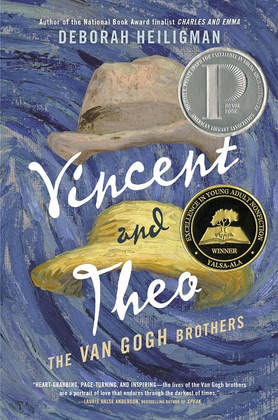 Book reviews are helpful to writers and readers. I've been a lazy reviewer in the past, so in an effort to become a more consistent reviewer, I'm hoping to post one a month. Today, I'm featuring VINCENT AND THEO, THE VAN GOGH BROTHERS by Deborah Heiligman. It won ALA's Excellence in Fiction and Printz honor awards for 2018 and I can see why. Besides books on writing craft, I don't read a lot of nonfiction. But the artist in me couldn't resist this book. It's thick (409 pages), but the chapters are short and mesmerizing and their complimented by Van Gogh's sketches and paintings. It's clear from the start, this author immersed herself in the life of these brothers. The biography is based on the enormous volume of letters Theo and Vincent exchanged. It's a tragic story, but also one of hope and endurance. Vincent's mental illness is portrayed with honesty and sensitivity, as is Theo's poor health from syphillis. Vincent's devotion to his art and the brothers' devotion to each other transcended the tragedy in their lives. When you finish this book, you'll want to set it down gently and find a quiet space to let it settle in your soul.
0 Comments
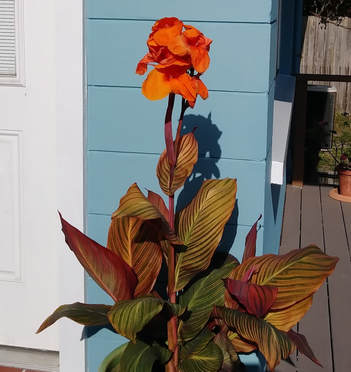 Summer is a time to embrace the outdoors and growing things. I love hanging out with plants. There's so much color and texture in a garden and fascinating paths to explore, from the tiny trail of ants to stepping stones that lead to gates and doors. And everywhere you look, there's a vivid picture or story. I can't go into my yard without seeing a void that needs a spot of color, tall, linear plant or a twisting pathway. When it came time to paint our house, I asked the blooming plants what color they'd like. They picked a medium blue with green tint. Now, my calla lilies, allamandas and Hawaiian Tis are preening and strutting in front of the walls, and the house seems happy with the color. Treating my home and garden as a work of art isn't something I think about, it just instinctively happens. I'm not alone. Many creative minds apply fertile imaginations to their environment. Frida Khalo's home demanded attention just as she did. Called La Casa Azul after the vivid blue color on her walls, her garden complimented the color, or vice versa. Maybe she consulted her plants before she chose that hue. I know she loved them. In self-portraits, blooms from her garden crowned her hair. The New York Botanical Gardens was so fascinated with Frida's planting skills, in 2015 they recreated her home and garden (see above). Beatrix Potter was fascinated with plants, fungi and wildlife and she drew them in exquisite detail. From that love, Peter Rabbit sprang to life. Beatrix was a farmer and a conservationist and she created more than one stunning garden. Many writers escape to their gardens to work. Dylan Thomas penned his poems from this shed overlooking the Taf estuary in Wales. Roahl Dahl admired this shed so much, he recreated it in his garden.
Someday, I hope to add a writing shed to my garden. In the meantime, I'll keep asking my plants what they'd they'd like next. PHOTO ATTRIBUTIONS: The Blue House by Peter Andersen / CC BY-SA Hill Top, Near Sawrey by diamond geezer / CC BY-NC-ND 2.0 Dylan Thomas Writing Shed by wardyboy400 / CC BY 2.0  Racetrack Orphan by Susan Banghart Racetrack Orphan by Susan Banghart Being an animal lover and a writer of children's books, I was fascinated with an interview I heard of an organization called Red Rover. Besides providing shelter, resources and finances for animals and people in crisis, they raise awareness in children through their Reader's Program. It's aimed at educators and provides a list of books for ages 5-11 that inspire understanding and empathy, like Buddy Unchained, Hens for Friends and Rescue and Jessica: A Life Changing Friendship. The books are sorted by theme: Domestic Animals, Pet Loss, Wildlife and Animal Behavior. A three-week online course teaches how to maximize the impact of the books with discussion questions and activities. For kids who prefer a digital experience, Red Rover offers a bi-lingual app. It targets ages 7-11 and functions like a graphic novel, adding pop-up questions, discussion topics and games to help kids practice emotional awareness, critical thinking and compassion. Red Rover also publishes Kind News magazine, for 8 and up, and Kind News, Jr, for ages 5-7. The magazine teaches how to care for pets and how to take action to improve animals' lives. In March, Red Rover participated in Read Across America and gave one lucky educator a $200 bookstore gift card, plus a year's subscription to Kind News magazine. I like to imagine the kids in that classroom being so inspired they become animal and human rights advocates. I love stories about books making a difference. Red Rover is using them in a big way to make this world a better place. They have a host of powerful videos. Here's one: 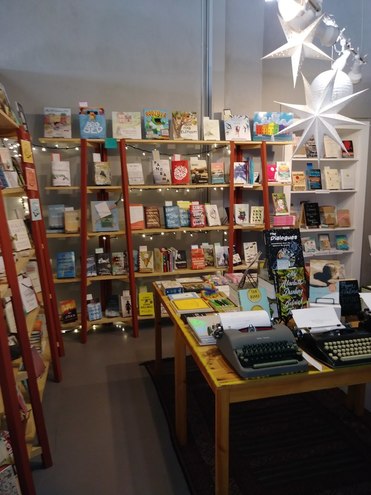 Until I began my journey as a writer, I never fully understood what it took to create a novel. I knew writers had to write them and publishers print and bind them, but I imagined it as a charmed process, with ideas springing to life on the page. Painlessly, seamlessly, in the blink of an eye, there's a book. If you're an author or someone who supports authors, I'll give you a minute to stop laughing before we continue. Done? Okay, let's move on to reality. Most books take years to achieve. First a writer has to learn how to write a good story. That is not a speedy or painless process. Part of that education is writing books. All of them start with an intriguing idea. It may ferment in the author's head for decades before it grows big enough to be a first draft. First drafts take some people months and others, a year or longer to write. And revision, please, lets talk revision. How many drafts is enough? I don't count anymore. My critique group gets my second draft to review. Then I analyze plot and character arcs, map scenes, scribble notes all over the place. Many drafts later, my agent is allowed to see it. Of course, she has suggestions, all of them excellent, for making a better story. Yesterday, after a month or so of brainstorming and revising, I sent my manuscript back to her. I'm waiting for her response. Is it ready to take the next step, be submitted to publishers? Often, I hear books being referred to as babies, birthed on the day they're offered to the public. But I think they're born when they're released from the author's head. My story is now a toddler, taking wobbly steps, hoping to grow into a real book. This is what it looks like today: This is what I hope it grows up to be, a beautiful middle grade book, like my friend Augusta Scattergood's. If you're an aspiring author, I wish you courage and perseverance, and the confidence to believe in your abilities and your books. If you're not a writer, but you love books, I hope you'll treasure them all the more, knowing how hard they worked to reach you.
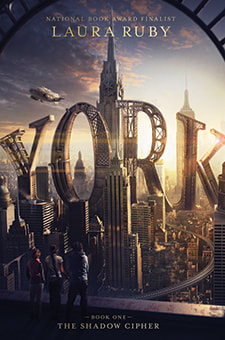 YORK: Book One of THE SHADOW CIPHER by Laura Ruby Tess, Theo and Jaime live in a Morningstarr apartment building in an alternate steam punk New York. In the eighteenth century, the mysterious Morningstarr twins designed the city with ingenious robotic creatures that run air and underground trains and scuttle out of manholes to clean streets. When a developer threatens to demolish their building, Jaime, Tess and Theo are determined to find the Morningstarr treasure to save it. First, they must solve the Morningstarr cipher, a puzzle that's stumped treasure hunters for over 160 years. As the children race to beat the demolition date, the city and the cipher seem to funnel them clues, drawing them into a Morningstarr world, both thrilling and dangerous. This book was immensely entertaining, beautifully written and emotionally satisfying. Although the characters sometimes seemed more sophisticated than their age, especially the youngest (five or six, I think) who traveled the halls on her bike, they were all charming and diverse. The setting was richly imagined and the plot kept me turning pages. I'm looking forward to the next book and I think advanced middle grade readers of mystery and science fiction will love it. For more kid lit reviews, head over to Jen Vincent's and Kelly Moye's blogs.  I've been querying agents for about eight years. When I started, I kept a hand-written journal, noting the dates and responses I received from my list of carefully researched agents. The last two years, I abandoned my journal for a digital spread sheet. February 12, 2018, I typed the final entry: SIGNED WITH MY AGENT! Ten years learning to write. Four novels queried. Over ninety queries sent. Seventy-one rejections. One offer to represent. The other nineteen agents were informed that I signed with an agent, so I don't know how they would have responded to my work. I've always learned from and been inspired by posts about authors' journeys to acquiring an agent, so I thought I'd share a bit of mine. When I submitted my first book, I had no idea how far I was from being ready. I sent off the requested pages, along with a horrible synopsis. I'm sure it was the easiest rejection of the day for every agent on my list. Was I crushed? Yes, but I moved on. I took online classes, read books on craft, joined two critique groups on top of the one I already belonged to, thinking I'd learn three times faster. And I revised over and over and over again. Five months later, I submitted my first book again, but more cautiously and to fewer agents. I received two requests for partials. Jump for joy, progress! In the end, they all rejected my dear book. So I set it aside, thanking it for all I'd learned. A year or so later, I queried my second book. By this time, I expected the rejections, but they stung just as much. I took my book to workshops and conferences, read more books on craft and listened to critique partners. By the third book, I knew how much I didn't know and was intimidated by how much I had to learn. I considered an MFA, but, given a writer's earning potential and our budget, I couldn't rationalize spending the money. So I plugged along the path. I knew quite a few published authors by now, and it was wonderful to celebrate their new books. It was also growing harder to imagine my books ever sitting next to theirs on a shelf. I learned to write lovely prose and create enticing concepts. Yes, the third book was also rejected when I queried. But two agents said they'd like to see more of my work! And I discovered something crucial in the agents' responses, the weak spot I needed to focus on . . . structure. I needed to learn how to plot. So for my fourth book, I chose a story that would fall apart without a well-conceived plot. Ignoring the urge to create pretty writing, I gave my character a concrete goal and charged towards that goal on an armored-horse with a lance in hand. I worked on that book for almost two years. It won Florida's 2018 Rising Kite contest. I submitted it to agents the week after and was offered representation one week later. Here's what I learned from this journey: Read new books in the age category that's your focus. Read award-winning books. You don't have to analyze them, but become familiar with what kids are reading today, and soak up the way good stories are told. Learn everything you can about writing for children. There are many good books on craft to choose from. Join the Society of Children's Book Writer and Illustrators. Jump on their forum, ask questions and participate in discussions. Attend SCBWI workshops and conferences for motivation, education, networking and opportunities to pitch your book to editors and agents. Find a good critique group. Your local SCBWI chapter can help with that. Critique partners not only help you grow your book, they help with query letters and they're there to support you. Writers understand writers. When you're facing an inbox of rejections, agents can seem like the enemy. They're honestly not. They work weekends and nights, shuffling through massive piles of queries. They give up their days off because they want to find their next client. They want to find stories they love. So, before you send a query, ask yourself if it will shine in that pile of hopeful submissions. Learn what you can from rejections. If an agent responds with a personal comment, read it carefully. Decipher it. Has she said I'm not relating to the character? Study character emotion and how to put that on the page. Did she not connect with the concept? How can you make it more original and dynamic? Perseverance is your best friend. Embrace it. Feed it vitamins. You need it healthy and strong! No two paths are alike. When you start comparing yourself to someone who published their first book after only two years of writing, put blinders on and focus on telling the stories only you can tell. Every book you write teaches you how to write better. There are no wasted efforts, unless you quit. Don't give up! 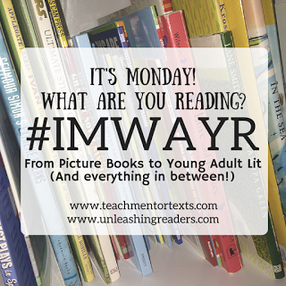 For the first time I'm participating in kid lit reviews hosted by Kellee Moye and Jan Vincent. Unlike the teachers and librarians who amaze with their stack of reviewed books, along with a list of the ones they're still reading or planning to read, I'm presenting one review. I'm a writer and I don't read any book fast these days. But I'm happy to be posting among such committed readers. My first #IMWAYR book is: WINTERHOUSE by Ben Guterson. Orphan Elizabeth Somers is a reader, a puzzle solver and a girl driven by curiosity. When her cruel aunt and uncle send her to a grand hotel for the Christmas holiday, Elizabeth is puzzled at their sudden generosity. Freed from the poverty and neglect she's grown used to, Elizabeth's spirits soar under the doting care of the hotel's owner, Norbridge. But there's darkness in Norbridge's history and it's threatening the hotel. Elizabeth is determined to discover the source. Her curiosity leads her down dangerous paths. As she uncovers the hotel's secrets, she feels more and more connected to Norbridge and his past. I enjoyed this book and it's wonderful illustrations. The intrigue was mixed with a drop of magic and set in a wintry wonderland. Elizabeth's curiosity sometimes produces terrible consequences. And although she tries briefly to rein it in when it affects a new friendship, she quickly returns to acting on impulse. That felt like a genuine portrayal and provides good content for discussion. Elizabeth is also a brave girl and she doesn't doubt her perceptions. Her confidence was awesome. The best news for fans of this book: it's the first of a trilogy! 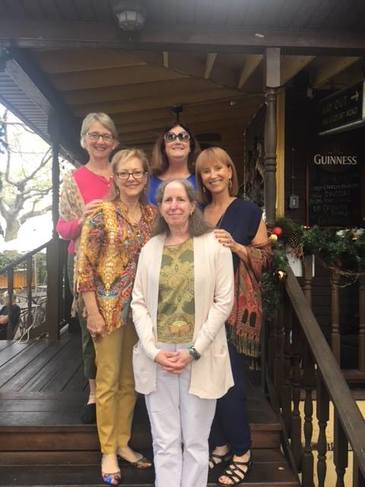 The Skyway Writers The Skyway Writers I'm a world-class introvert who, except for college, has been perfectly happy creating art by myself without a soul intervening. But the day I realized I wanted to write books for children, I went looking for people with the same goal. I needed to learn and I wasn't prepared to go into debt for an MFA. So I joined the Society of Children's Writers and Illustrators and found a local critique group. That was ten years ago. Not only did I discover writers who were willing to share their knowledge and experience, I found people who accepted and supported me. My critique partners, the Skyway Writers, are committed, compassionate women. We're as dedicated to helping each other succeed as we are to achieving our own goals. We share our stories, our hopes, our devastation over hurtful book reviews, or agents and editors who pass on our projects. As our knowledge evolves, our writing grows stronger through honest, intensive feedback. Today, I consider these women great friends and I can't imagine writing without them. Bolstered by my critique group experience, I fought my reclusive tendencies and dragged myself to SCBWI events. Here in Florida, we have an amazing community of writers. For many years, writing teacher and picture book author, Rob Sanders organized local SCBWI workshops and presentations. No introvert stands a chance when confronted with Rob's charm. He has a smile as warm as Texas and a passion for helping writers achieve their goals. He has now passed his local responsibilities to writing coach Bob Schwartz, but Rob hasn't stopped encouraging writers. At the state level, Florida's Regional SCBWI Advisor, Linda Bernfeld, works year round with a host of dedicated volunteers to support writers. They orchestrate two conferences, gathering some of the publishing industry's best and brightest to teach and inspire Florida writers. Florida SCBWI also provides mentoring opportunities, a website and newsletter, a statewide boot camp, an annual writing contest and a growing list of critique groups. If you visit a conference, you'll see Linda and her team, racing here and there, making sure writers and presenters have what they need. They come to those conferences, determined to make writers' dreams come true. From the start, everyone, and I mean everyone, has been kind and friendly. I'm not sure what it is about children's writers, but if you sit next to one, you've likely made a friend for life. Some are shy like me, some outgoing and engaging. But they all scoot over to welcome new members. And that feeling isn't contained to Florida. SCBWI President Stephen Mooser answers emails as if he's sitting across from you, sipping tea. He and Executive Director Lin Oliver, travel from their homes in California to teach and inspire at our conferences. They offer a fantastic yearly grant contest, opportunities for members to publish articles, poems and illustrations in their magazine The Bulletin, and a place to interact, ask questions, find and form groups on their website. But even with that army of goodwill permeating a decade of SCBWI membership, the child inside me who moved too many times to make friends, hesitated to believe I belonged. Until two weeks ago. It was the weekend of the SCBWI conference in Miami where the results for Florida's 2018 Rising Kite writing contest would be announced. I wasn't able to attend, but encouraged by writing partner Augusta Scattergood, I entered my middle grade book in the contest. Sunday afternoon, my phone pinged. Fellow Skyway writer Teddie Aggeles texted "Look at your email!" I did. There in my inbox was a message from two more Skyway Writers, JC Kato and Janet McLaughlan. They were at the conference, cheering and accepting my award for first place in middle grade fiction. My phone pinged again and I pulled up Facebook to see a photo and congratulations from author/illustrator Fred Koehler: More cheers followed, many, many cheers, from people I knew and people I didn't. I cried happy tears off and on all afternoon. Winning was a great honor and a thrill, but it wasn't the award that overwhelmed me. It was the kindness and love from writing friends. It went straight to my heart and broke that rusty, old lock that chained me to the belief I didn't belong. So, thank you Rob and Dorian Cirrone, for your special efforts to support this reticent writer. Thank you Janet and JC, for cheering my win, accepting my award and pitching my book to an agent. You are the most awesome writing pals. Thank you Fred and Teddie for elevating my Sunday afternoon by announcing my win. Thank you Augusta for always, always encouraging writers to reach for the dream. And last, but in no way least, thank you Linda, Dorian, Linda Shute, your brigade of volunteers and every person who scoots over to make room for shy people. You are a powerful force for good in this world.
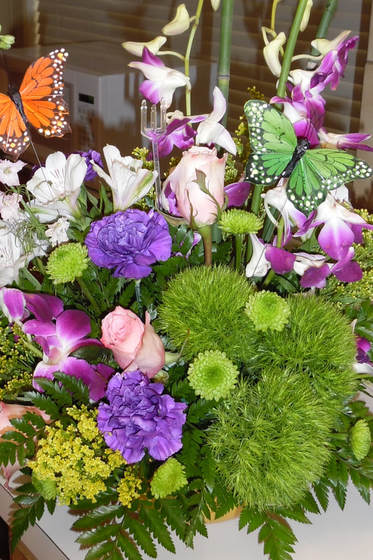 I've been reading writers' Facebook posts summarizing 2017 and looking forward to bigger and better things in 2018. Many of them listed books being published and manuscripts sold that will become future books, which is fabulous. But I wonder how they celebrated those accomplishments. Writers struggle for years to produce a publishable book. Then there's the long, agonizing journey to find an agent who loves the project, and another trek to find a publisher who believes in it, too. In the quest to attract agents and publishers, we endure more rejection than many people face in a lifetime. We battle anxiety and self doubt. We question why we put ourselves through this torture. So when a writer's manuscript beats the odds and becomes a purchasable reality, you'd think there'd be a big party. All the friends and relatives who couldn't for the life of them understand why it took ten years to make a book would be invited, along with the author's writing community. They'd bring their excitement and high hopes for the book's success. The author's spirit would bubble and glow, refreshed and recharged for the grueling journey of the next project. I have a lot of published writer friends, but I've never heard of any of them throwing a party. They share their good news on Facebook and Twitter, garnering a flurry of excitement that lasts a day or two, all of it evaporating in cyberspace while the author sits at home. The closest they come to physically celebrating is a book launch. Although they get congratulated and wished good luck, book launches are all about about introducing and selling the book. It's business My critique group is wonderfully supportive and deeply committed to each member's success. We celebrate holidays with gifts and goodies, sometimes even a special lunch. If one of us travels, they'll likely bring back souvenirs. Our fabulous leader Teddie often surprises us with impromptu gifts. But when it comes to our writing, an enthusiastic round of congratulations is how we usually recognize achievements. That's just plain sad. Are we allergic to literary exuberance, afraid too much joy will curse our next project? I don't know the answer, but one of my goals in this new year is to rectify this imbalance. I've asked my critique partners to brainstorm ways to acknowledge accomplishments, from finishing a book to seeing it on the shelves. I'll let you know what we come up with and what we do with those suggestions. In the meantime, I hope you have an art or writing project you're excited about and that 2018 brings plenty to celebrate. Happy New Year!  Mural, Dowtown, St. Petersburg, FL Mural, Dowtown, St. Petersburg, FL Writers invest a lot of time learning their craft. We study books and blogs and attend talks by authors, editors, agents and teachers, all in an effort to write better stories. We hear pretty much the same advice from everyone: Show,Don't Tell Never Open Your Book With A Dream Avoid Backstory Whenever Possible Shun Passive Verbs Balance Dialog, Action and Internality Get Rid Of Adults (for children's writers) We listen. We take their advice to heart. We work to present dramatic stories with dynamic verbs and sparse backstory. We avoid sleeping scenes with even a hint of a dream. Then apologizing to our beloved parents, we kill off the adults. We advise our critique partners to attack every instance that doesn't follow the rules and we slash the offending sections. So, it's with utter dismay that we pick up the latest award-winning novel and discover it opens with a dream and pages and pages of backstory, or the author uses to-be verbs in every other sentence, or most of the story focuses on adults. I used to frown at these books, scratch my head. Fellow writers and I would discuss the mystery. How did these books get published when they break the rules we've been taught? What I've come to understand is that great books tell a great story. Period. Readers don't know the rules and they don't care. And when it comes right down to it, neither do publishers. No doubt, they want writers to know their craft. They want them to write the best book they can with bonus points for beautiful language and style. But compelling story and voice is what sells books. When I was an art student, we were told, learn the rules, then you can break them. So that's my advice to new writers. Study, learn the rules and apply them. Practice, practice, practice. But don't ever let rules get in the way of your creativity. When you write a first draft, kick them out of your head and let the story flow. Focus on what makes your story original. Run wild with its uniqueness. Tell it the way only you can. The rules will be waiting in your handy dandy toolbox when you revise. Apply them with care, where needed. They should always make your story better. If not, put them aside. |
AuthorI write middle grade and young adult books with a magical twist, and I'm represented by the fabulous Leslie Zampetti at Open Book Literary. Writer Websites
Augusta Scattergood Maggie Stiefvater Rob Sanders Fred Koehler JC Kato Sarah Aronson Kelly Barnhill Linda Urban Kate DiCamillo Jacqueline Woodson Helpful Links SCBWI Agent Query Lorin Oberweger - Freelance Editor Search BlogArchives
May 2020
Categories
All
|



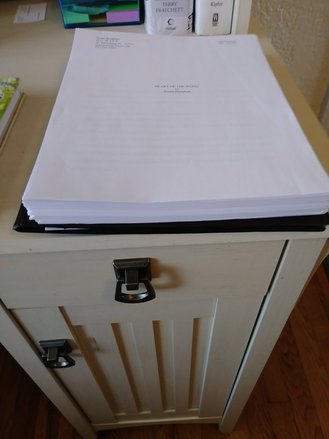
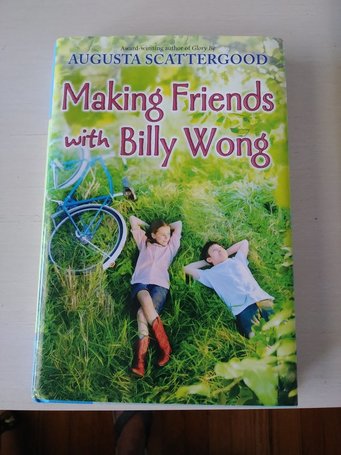
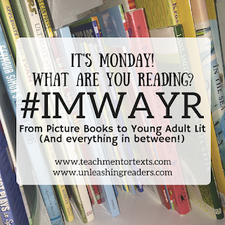
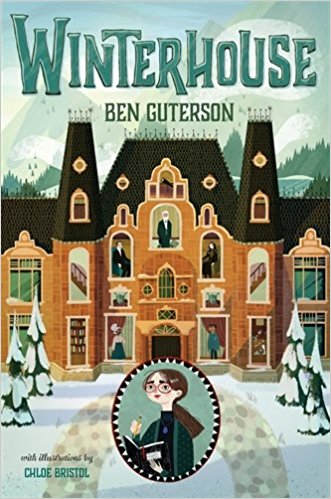
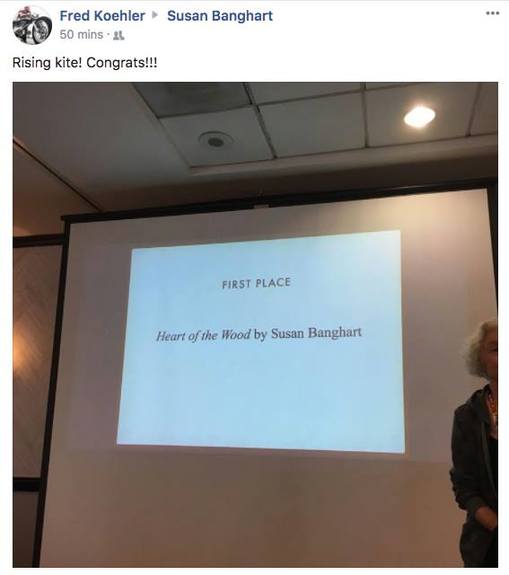
 RSS Feed
RSS Feed
